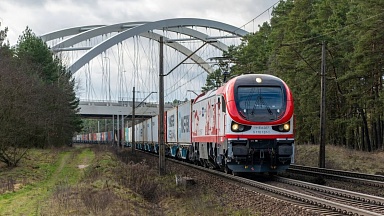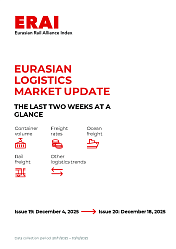Strategic Importance:
• Guoyuan Port: The largest port on the upper Yangtze River, integrating railway, road, and waterway transport. It plays a crucial role in the Belt and Road Initiative and the Yangtze River Economic Belt.
China-Europe Freight Trains:
• Growth: The Chongqing-Duisburg route, operational since 2011, has seen significant growth, becoming a vital artery for transporting goods between China and Europe, reducing transit times compared to maritime routes.
• Volume: Transported 200 billion yuan worth of IT products and nearly 70 billion yuan worth of vehicles and auto parts, demonstrating the rail network’s efficiency and reliability.
New International Land-Sea Trade Corridor:
• Reach: Connects 18 Chinese provinces to 518 ports in 124 countries, enhancing links between western China and ASEAN markets. Supports diversified trade routes, reducing dependency on any single pathway.
• Shipments: Over 400,000 standard containers transported as of June 2024, showcasing the corridor’s strategic design and operational efficiency.
Local Economic Impact:
• Manufacturing Hub: Chongqing excels in automobile, motorcycle, and electronic information sectors, also supplying natural gas, steel, and aluminum.
• Port Expansion: Leads in the volume of open ports in western China, with recent approvals bringing the total to seven, enhancing capacity to handle increased trade volumes.
Safeguarding Supply Chains:
• Geopolitical Stability: Amid global tensions, China-Europe freight trains offer a reliable alternative to sea transport, ensuring stable logistics and supply chains.
• Supply Chain Resilience: Multiple trade routes enhance resilience, mitigating risks from disruptions.
Economic Contributions:
• Trade and Industry: Supports local trade and economic development, with notable growth in pharmaceuticals, vehicles, and other industries.
• Future Prospects: Continued logistics and infrastructure investments are expected to bolster Chongqing’s role as a logistics hub, enhancing operational efficiency and capacity.
Challenges and Innovations:
• Technological Integration: Ports like Guoyuan use intelligent container gantry cranes to enhance efficiency, adopting advanced technologies for higher productivity and reduced costs.
• Policy Support: Strong governmental backing facilitates infrastructure development and attracts investment, supporting sustained growth.
Sustainable Development:
• Environmental Initiatives: Adoption of green technologies and practices to enhance sustainability of logistics operations, reducing environmental impact.
• Renewable Energy: Investments in renewable energy for logistics operations align with national goals for reducing carbon emissions.
International Collaboration:
• Global Partnerships: International collaborations enhance capabilities and expand reach, supporting integration into the global logistics network.
• Trade Agreements: Facilitate smoother logistics operations and enhance trade flows, providing a framework for cooperation and conflict resolution.
Community Impact:
• Job Creation: Growth in the logistics sector supports job creation, providing employment in transportation, warehousing, and technology.
• Economic Growth: Drives investments in related industries, supporting regional development, enhancing living standards, and economic resilience.
In conclusion, Chongqing’s strategic initiatives and robust infrastructure development have positioned it as a vital logistics hub, significantly contributing to China’s trade dynamics and economic resilience.
«Chongqing Becomes a Rising Logistics Hub in Western China — Global Times.» 2024. Globaltimes.cn. 2024. https://www.globaltimes.cn/page/202407/1316478.shtml.




